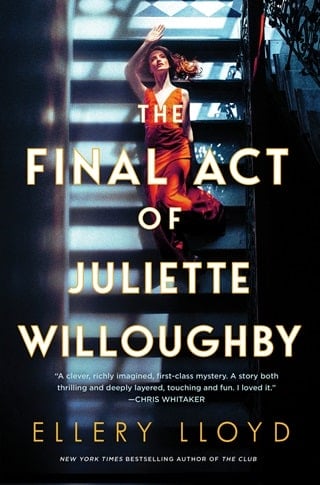Chapter 6
PATRICK, DUBAI, THE PRESENT DAY
I am trying to think when I have been this scared before. Never, I think, is the answer.
I didn't really quite grasp that I'd been arrested until I was walked out of the gallery and into the waiting police car.
All the way to the station, I kept asking what the issue was and getting no answer. A scratched Perspex divider separated where I was sitting from the front seat. One officer squinted through the dusty windshield; the other stared out of the passenger window as we drove to the station compound. The whole time, playing on an ever-escalating loop in my head, were all the horror stories I had heard about people who had found themselves on the wrong side of the legal system here. The tourists jailed for public lewdness. The friend of a friend who got into a drunken argument with the security guard at a hotel brunch. The married man who kissed his husband in a nightclub. The sexual assault victim, here on holiday, who made the mistake of reporting the incident to the police.
It would be hard to explain to someone who has not lived in this country, the permanent low buzz of expat paranoia, a paranoia that is not quite paranoia, because things can go wrong here, even for people like me. And when they do go wrong, they can go very wrong, very fast.
It is a city of two sides, Dubai: the shiny side and the other side. I can pinpoint the exact moment today when I passed from one into the other. As we walked in through the entrance of the police station, with its polished floors, its glossy posters and framed mission statements, it was still possible to believe that I was here simply to assist the police with their inquiries about something. No one said anything about giving up my phone. As if it was just a formality, I was told they would need to take my fingerprints and a mugshot.
Then we go through a door and suddenly we are on the other side: a corridor painted a drab green, the overhead lights humming and flickering, acrid disinfectant not quite covering other smells. I am directed into a room and told to sit.
After what feels like a very long wait, the door opens. I shiver, unsure whether it's the apprehension or the air-conditioning. Two men enter. Both take a seat. One man's face is heavily lined, with pockmarked cheeks. The other man is younger, slimmer, with rimless glasses.
It is the younger guy I find myself addressing.
"I'm very sorry, but I still don't really understand why I am here," I tell him, smiling in what I hope is an ingratiating manner, consciously playing the amiable befuddled Englishman. "Is this something to do with money? I know how seriously you take debt here—if I am overdrawn or have missed a payment for something, it is just a temporary misunderstanding. If you let me call my bank, I can very quickly clear things up..."
The older man says something to the younger, gruffly. The younger translates.
"This has nothing to do with your empty bank account or your credit card debt, Mr. Lambert."
"Is it something to do with the painting, then, Officer?"
The painting I have just sold had not, after all, made its way to Dubai through quite the correct channels. In fact, it came in Harry's suitcase on an economy Emirates flight. It could be that this is a customs duty thing. Or perhaps was it something to do with the sale of the painting and how it had been conducted? There were lowball offers I had politely declined, and it was not unheard-of for a disgruntled collector to make some sort of spurious accusation...
"He is the officer," the younger man says, indicating his unsmiling colleague. "I am just the translator."
My throat is dry. I ask for a glass of water. They exchange words. The younger man turns to me with a smile.
"Of course you can have something to drink. But first it is important we clarify a few things."
"Of course," I say. "Ask me anything you like."
For some reason, he keeps asking me about Harry Willoughby, how I know him, how long I have known him. He asks me why I think it was to me that Harry came to sell this painting, this Self-Portrait as Sphinx. I explain again about the relationship between my father and Harry's father, the length of my and Harry's friendship. They ask about the terms on which I had agreed to sell the painting, whether I thought they were fair. They ask when I last spoke to or contacted Harry. Had I thought it strange he was not at the press conference?
A little strange, I say. A bit rude, perhaps. I had left several messages, asking where he was.
"Is all this about Harry?" I ask. "Is Harry in trouble?"
Only then do they tell me that Harry is dead, that Harry has been murdered.
Only then does it dawn on me the reason I am here is that they think I killed him.
 Fullepub
Fullepub 



